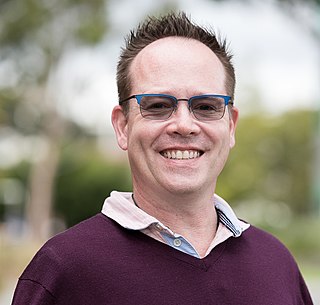Internal medicine, also known as general internal medicine in Commonwealth nations, is a medical specialty for medical doctors focused on the prevention, diagnosis, and treatment of internal diseases in adults. Medical practitioners of internal medicine are referred to as internists, or physicians in Commonwealth nations. Internists possess specialized skills in managing patients with undifferentiated or multi-system disease processes. They provide care to both hospitalized (inpatient) and ambulatory (outpatient) patients and often contribute significantly to teaching and research. Internists are qualified physicians who have undergone postgraduate training in internal medicine, and should not be confused with "interns", a term commonly used for a medical doctor who has obtained a medical degree but does not yet have a license to practice medicine unsupervised.

In a physical examination, medical examination, clinical examination, or medical checkup, a medical practitioner examines a patient for any possible medical signs or symptoms of a medical condition. It generally consists of a series of questions about the patient's medical history followed by an examination based on the reported symptoms. Together, the medical history and the physical examination help to determine a diagnosis and devise the treatment plan. These data then become part of the medical record.

A primary care physician (PCP) is a physician who provides both the first contact for a person with an undiagnosed health concern as well as continuing care of varied medical conditions, not limited by cause, organ system, or diagnosis. The term is primarily used in the United States. In the past, the equivalent term was 'general practitioner' in the US; however in the United Kingdom and other countries the term general practitioner is still used. With the advent of nurses as PCPs, the term PCP has also been expanded to denote primary care providers.
The American Board of Internal Medicine (ABIM) is a 501(c)(3) nonprofit, self-appointed physician-evaluation organization that certifies physicians practicing internal medicine and its subspecialties. The American Board of Internal Medicine is not a membership society, educational institution, or licensing body.

Narrative Medicine is the discipline of applying the skills used in analyzing literature to interviewing patients. The premise of narrative medicine is that how a patient speaks about his or her illness or complaint is analogous to how literature offers a plot with characters and is filled with metaphors, and that becoming conversant with the elements of literature facilitates understanding the stories that patients bring. Narrative Medicine is a diagnostic and comprehensive approach that utilizes patients' narratives in clinical practice, research, and education to promote healing. Beyond attempts to reach accurate diagnoses, it aims to address the relational and psychological dimensions that occur in tandem with physical illness. Narrative medicine aims not only to validate the experience of the patient, it also encourages creativity and self-reflection in the physician.
The Drug Industry Documents Archive (DIDA) is a digital archive of pharmaceutical industry documents created and maintained by the University of California, San Francisco, Library and Center for Knowledge Management. DIDA is a part of the larger UCSF Industry Documents Library which includes the Truth Tobacco Industry Documents. The archive contains documents about pharmaceutical industry clinical trials, publication of study results, pricing, marketing, relations with physicians and drug company involvement in continuing medical education.

Rita Charon, is a physician, literary scholar and the founder and executive director of the Program in Narrative Medicine at Columbia University. She currently practices as a general internist at the Associates in Internal Medicine at Columbia Presbyterian Hospital, and is a professor of clinical medicine at the College of Physicians and Surgeons of Columbia University.
James T. Rosenbaum is an American physician-scientist who is Senior Vice President for Research at Corvus Pharmaceuticals and Chief of Ophthalmology emeritus at the Legacy Devers Eye Institute, Portland, Oregon, where he held the Richard Chenoweth Chair. Previously, he was Chief of Arthritis and Rheumatic Diseases at the Oregon Health & Science University where he held the Edward E Rosenbaum Professorship in Inflammation Research. Rosenbaum was the only practicing rheumatologist/non-ophthalmologist in the world to serve as a chief of ophthalmology. He is recognized for his description of an animal model of uveitis resulting from injection of bacterial endotoxin and for more than 600 scholarly publications, mostly related to the intersection between rheumatology and ophthalmology. He is a co-author of the book, "The Clinical Neurology of Rheumatic Diseases".

OpenNotes is a research initiative and international movement located at Beth Israel Deaconess Medical Center.

Kate Breckenridge Karpeles was an American medical doctor. She was the first woman to be appointed a contract surgeon by the United States Army, during World War I, and she served as president of the American Medical Women's Association.
Lila Amdurska Wallis was a Polish-born American physician who was board-certified in internal medicine, hematology, and endocrinology/metabolism; the only doctor in the United States to be board-certified in all three specialties. Wallis developed a new methodology to safer gynecological examinations for patients that became the nationally accepted model throughout medical schools in the United States. Additionally, she founded and became the first president of the National Council on Women's Health, and created the Office of Women in Medicine at the New York Hospital-Cornell Medical Center in 1982.
Michele Barry is a professor of medicine. She became Stanford's inaugural Senior Associate Dean of global health in 2009 and started the Stanford Center for Innovation in Global Health in 2010. Prior to this, she was a professor at Yale, where she started the first refugee health clinic and homeless health mobile van project, for which she was awarded the Elm Ivy Mayor’s Award. She specializes in tropical medicine, emerging infectious diseases, women’s leadership in global health, and human and planetary health.

Fitzhugh Mullan was an American physician, writer, educator, and social activist. He participated in the founding of the Student Health Organization, the National Coalition for Cancer Survivorship, Seed Global Health, and the Beyond Flexner Alliance. Mullan was a professor of Health Policy and Management and of Pediatrics at the George Washington University and the George Washington University Health Workforce Institute, now renamed the Fitzhugh Mullan Institute for Health Workforce Equity. He was an elected member of the National Academy of Medicine.

Vineet M. Arora is an American medical researcher who is the Herbert T. Abelson Professor of Medicine and Dean for Medical Education at the University of Chicago Pritzker School of Medicine. She is a Fellow of the National Academy of Medicine. Her research considers clinical medicine and medical education, with a focus on the improvement of the quality of care in teaching hospitals.

David "Davey" M. Smith, is an American translational research virologist, chief of the Division of Infectious Diseases and Global Public Health at the University of California San Diego, co-director of the San Diego Center for AIDS Research, and vice chair of research in the Department of Medicine at UC San Diego. His research interests include transmission, prevention, and treatment of both HIV and SARS-CoV2 (COVID-19). Since joining the UC San Diego faculty in 2003, Smith has been awarded more than $37 million in federal funding as a principal investigator. His research interests include transmission, prevention, and treatment of both HIV and COVID-19.
Kimberly Dyan Manning is an American physician. She currently serves as a Professor of Medicine as well as the Associate Chair of Diversity, Equity, and Inclusion for the Department of Medicine at Emory University School of Medicine in Atlanta, Georgia. Manning has been recognized at the national level for her mentorship and teaching as well as her blogging and public speaking. She is the winner of the ACGME Parker J. Palmer Courage To Teach Award, the Evangeline Papageorge Award, and her blog “Reflections of a Grady Doctor” was named as one of the top four medical blogs by “O” The Oprah Magazine.
Ronald Okun is an American physician and pharmacologist. He testified before the United States Congress three times on behalf of tobacco industry in the 1960s and 1970s, attempting to discredit the fact that smoking causes illness. He was also the co-editor of the Annual Review of Pharmacology and Toxicology from 1977–1989. For at least twenty years, he was the director of clinical pharmacology at Cedars-Sinai Medical Center.
Eve Askanas Kerr is an American physician-researcher. Kerr is a Full Professor of internal medicine and the inaugural Vice-Chair of Diversity, Equity, and Well-being at the University of Michigan.
Lydia Kang is an American author of adult and young adult fiction, poetry, and nonfiction. She is also an internal medicine physician, and practices internal medicine in Omaha, Nebraska.

Kaveh G. Shojania is a Canadian doctor, academic and an author. He is the vice chair of quality & innovation in the department of medicine at the University of Toronto as well as staff physician at the Sunnybrook Health Sciences Centre.










